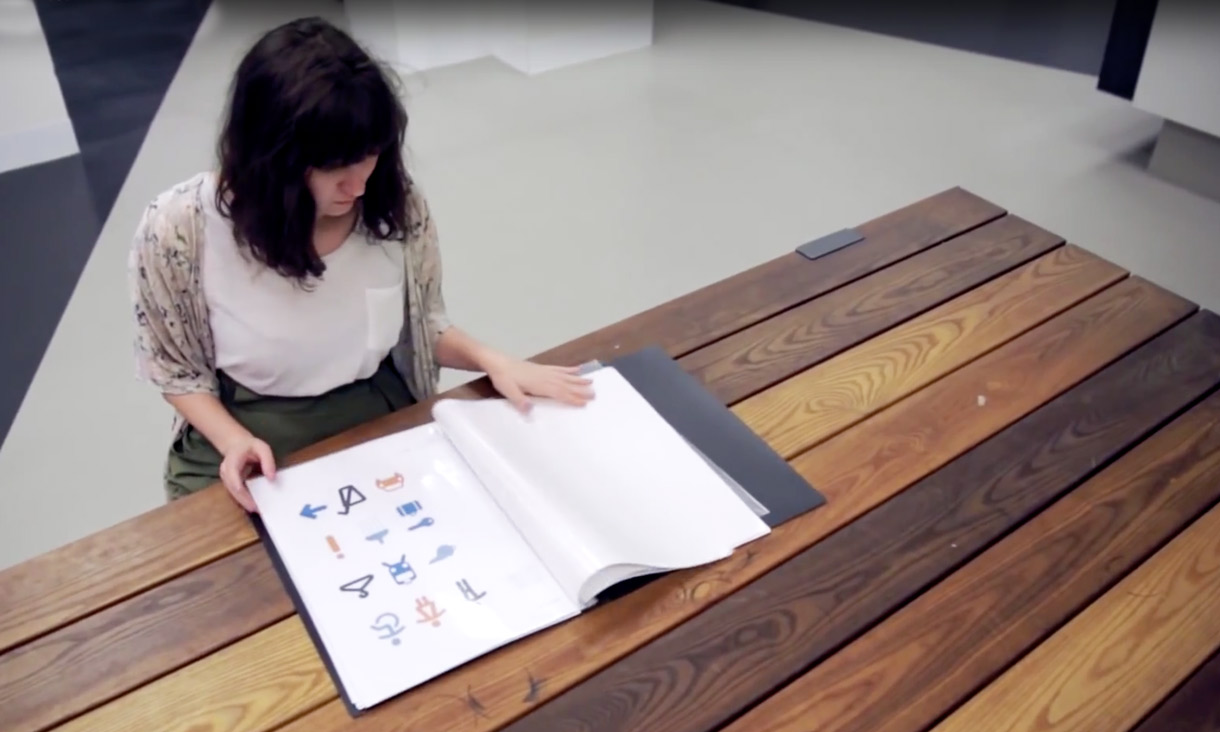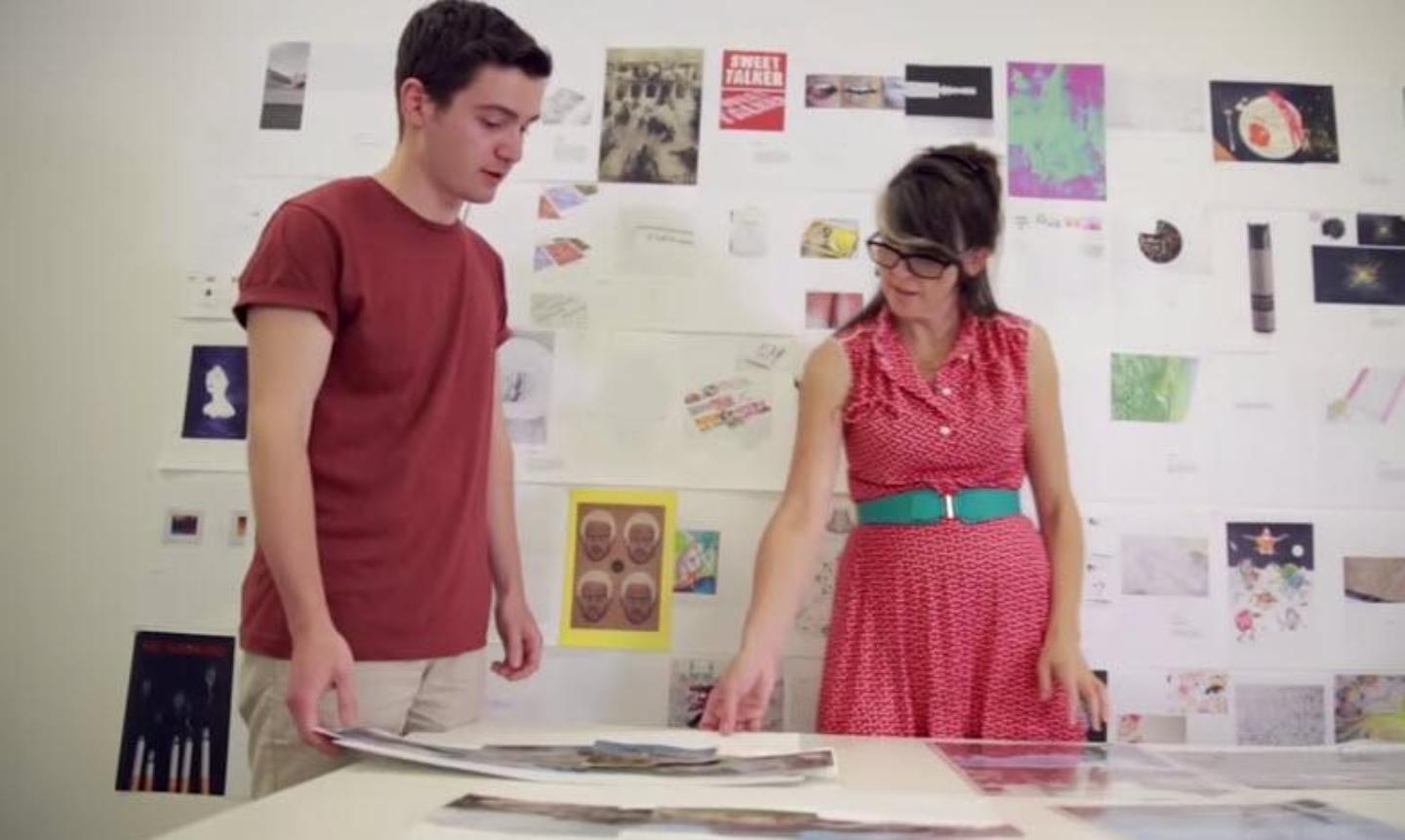Selection tasks (also known as selection requirements) are tasks that you are required to do in addition to your application for some RMIT courses.
Selection tasks help RMIT consider your capacity to succeed in courses in art, design and other disciplines where an ATAR or grade point average might not tell the whole story about your creativity, skills and passions.
Types of selection tasks
There are a number of different types of selection tasks and
it’s important to note that some courses may have more than one selection task.
- Portfolio submission: An online or PDF form that requires you to complete a creative task or to supply a folio of creative work or answer a series of questions. Depending on the course, you may be short-listed or if required, attend a folio presentation or an interview.
- Folio presentation: A face-to-face or online session where you are asked about the work in your folio and your creative inspiration.
- Interview: A face-to-face or online session where staff ask you about yourself and your interest in the course.
- Bilingual test: A test used to assess your language capabilities in both English and a language other than English (LOTE).
- Supplementary form: A document where you are required to respond to a series of questions about your understanding and interest in the program.
What role does the ATAR play?
For most courses with selection tasks, ATAR is not considered as part of the selection process. Your eligibility for entry into these courses will be based on your performance in the selection task/s and meeting any prerequisites.
For a small number of courses, ATAR is considered as part of the application but is not the primary selection criteria. ATAR is used to rank applicants who have been assessed equally in the selection task/s, or is combined with the outcome of the selection task.
To see which courses take ATAR into consideration, please view the selection criteria in the VTAC course information and the RMIT course information.
Selection task guide
Check entry requirements for the selection task(s)
If a course requires a selection task, it will be indicated in both the VTAC course entry and the Admissions section of the related RMIT course page. The specific requirements for each selection task will be listed on every RMIT course page. Please ensure you complete all the requirements listed.
Check selection task due dates for every course you're applying for
Check the RMIT course page to confirm the due dates for each course. Ensure you meet these deadlines for your task to be assessed.
Apply for your course
Completing a selection task alone does not constitute an application for an RMIT course.
You still need to apply for your course (via VTAC or direct to RMIT).
Preparing your selection task
Make sure to prepare your material, images, folio and anything else required for the selection task/s early, as late submissions will not be accepted.
Art and Design application tips
View the following videos for some practical application advice:

Applying for Art and Design courses
Here's some advice for preparing folios and pre-selection kits to help make the process easier.

Art and design selection interviews
Wondering how an art and design selection interview works? Here's everything you need to know.
Submitting your selection task
How to submit your selection task
Direct to RMIT applicants
After you have submitted a direct application, the prompt to submit your selection task will appear on your dashboard.
VTAC applicants
When applying through VTAC, you will need to ensure that the course is a preference on your VTAC application.
- Step 1: Register to begin your selection task.
- Step 2: Click on ‘Start a selection task’.
- Step 3: Enter your personal details including your VTAC ID.
- Step 4: Select the program/course. You can search by its name, code, VTAC code or use keywords.
- Step 5: Complete the selection task and submit it.
- Step 6: Once submitted, it will provide you information on what happens next.
If you wish to apply for more than one selection task:
- Scroll to the bottom in your selection task portal
- Click on ‘Return to dashboard’
- Click on ‘Start a selection task’ and repeat from Step 4.
Confirm the next steps
Some selection tasks have more than one step, e.g. submission of an online task, followed by an interview or folio presentation.
Make sure you are aware of any next steps in the selection task process to ensure you meet all of the requirements.
If you are required to attend an interview or folio presentation, you will be contacted by the school.
After the assessment of your selection task, you will be sent an email to update you on the outcome of that task. The advisory email will indicate whether you are likely to be made an offer in a program based on your performance in the selection task.
Need help?
If you are submitting a task online, you will find Help & Support articles to guide you through the submission process.
Otherwise, our friendly staff at Study@RMIT are available five days a week to assist you.


